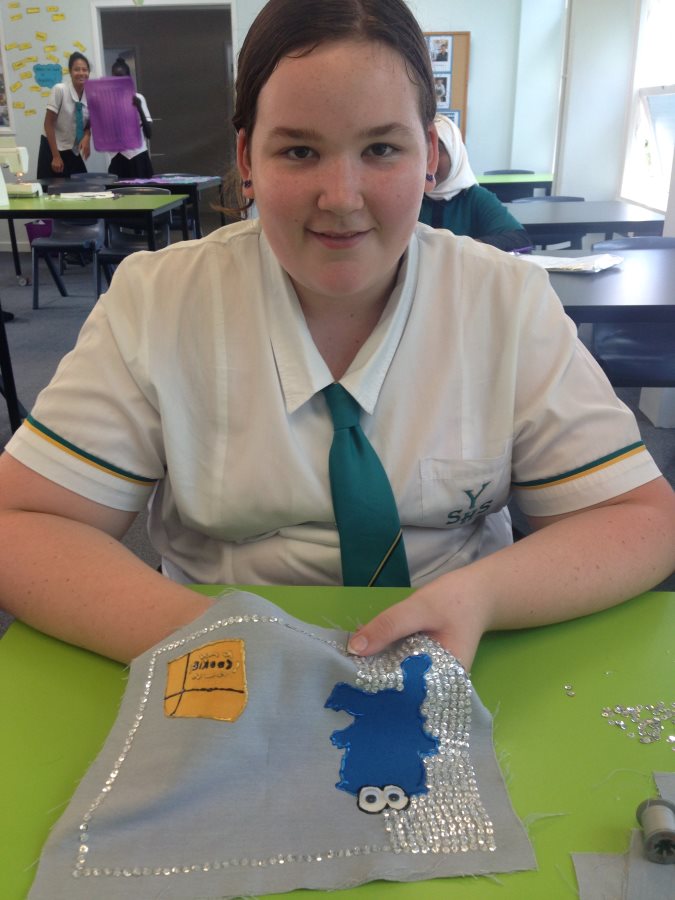Junior and Middle Secondary (Years 7 to 10)
Textiles and Food Technology
In Textiles and Food Technology, students will have had the opportunity to create designed solutions in Food and fibre production, Food specialisations and Materials specialisations. Students will have opportunities to design and produce products.





Students use design and technologies knowledge and understanding, processes and production skills and design thinking to produce designed solutions to identified needs or opportunities of relevance to individuals and regional and global communities. Students work independently and collaboratively.



With greater autonomy, students will identify the sequences and steps involved in design tasks. They develop plans to manage design tasks, including safe and responsible use of materials and tools, and apply management plans to successfully complete design tasks.



Students will use creativity, innovation and enterprise skills with increasing independence and collaboration. They will respond to feedback from others and evaluate design processes used and designed solutions for preferred futures.




Senior School
Early Childhood Years
Early Childhood Studies focuses on learning about children from birth to five years. A cornerstone of the subject is the significance of play to a child's development. Play involves opportunities in which children explore, imagine, investigate and engage in purposeful and meaningful experiences to make sense of their world. Students explore play based learning activities from two perspectives: they use theories about early childhood learning and devise plat-based learning activities responsive to children's needs. This subject encourages students to be advocates for the wellbeing of children by appreciating the significance of these interactions in order to help children develop into confident, independent and caring adults.





Hospitality Practices
Hospitality Practices focuses on the knowledge, understanding and skills relating to food and/or beverage production and service. Students will learn about the structure, scope and operation of the food and beverage sector and develop appreciation of industry workplace culture and practices. Students will be encouraged to develop skills, processes and attitudes desirable for future employment in the sector.



Hospitality offers a range of exciting and challenging long-term career opportunities across a range of businesses. The industry is dynamic and uses skills that are transferrable across sectors and geographic borders. Hospitality Practices enables students to develop knowledge, understanding and skills of the hospitality industry and to consider a diverse range of post school options.


In Hospitality Practices students will learn through practical application, developing skills in food and/or beverage production and service, and working as an individual and part of a team to plan and implement events in a hospitality context. The subject consists of three core topics — navigating the hospitality industry, working effectively with others, and hospitality in practice. The core topics describe concepts and ideas and the associated knowledge, understanding and skills fundamental to the hospitality industry, and are delivered through electives. The three electives — kitchen operations, beverage operations and service, and food and beverage service — represent key employment areas within the food and beverage sector, enabling students to develop a solid understanding of the sector.

Students will have the
opportunity to undertake and complete their Certificate II in Hospitality
Operations through Axiom College through a partnership arrangement. Courses run
in the school vacation periods.
Fashion
Fashion is a practical subject in which students learn through doing as they engage in a design process to plan and produce fashion items across a range of different categories including adornment, street wear and slow fashion. Students learn to appreciate the design aesthetics of others while developing their own personal style and aesthetic. They explore contemporary and historical fashion culture; learn to identify, understand and interpret fashion trends; and examine how the needs of different markets are met. Students also explore fashion merchandising and marketing in order to capitalise from their designs.




